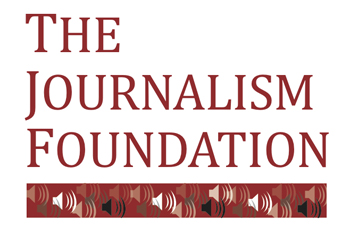It has been a difficult time for the British press, caught up in the phone-hacking scandal that has meant the death of the News of the World paper, along with arrests of News Corp. personnel, suspensions at Scotland Yard, and never-ending investigations. But from those ashes has risen one idealistic effort to promote free press issues around the world: The Journalism Foundation.
Unlike in the U.S. with our non-profit funders such as the Knight Foundation, the U.K. and Europe have been looking for a white knight that could help support struggling legacy media in their transition to digital. The Journalism Foundation was started last October by former editor of the Independent, Simon Felner, with money from the Independent’s owners, the Lebedev family.

The Foundation’s first two projects include a training program for journalists in Tunisia (in conjunction with the City University of London’s journalism school) and financial support for a hyper-local site in Stoke-on-Trent called pitsnpots. But the Foundation has also hired its own editorial staff, who are posting stories online relating to digital media, freedom of speech, and the Leveson Inquiry. The site recently ran a first-person account from the Independent’s Guy Adams about Twitter suspending (and then un-suspending) his account.
I recently struck a content-sharing deal with The Journalism Foundation, so that they could run our various stories from MediaShift on free speech issues, while we could run their stories that touch on the digital and global angle of freedom of expression. The hope is to spread our content and ideas across the pond in both directions.
I asked the site’s editor, Arion McNicoll, six questions via email to learn more about the Foundation and how it plans to spend its grants. McNicoll comes to the Foundation after being the assistant editor of The Sunday Times online, helping the Times build its iPad app. The following is an edited version of our exchange. (McNicoll also posted his interview with me here.)
Q&A
1. How did you get involved in The Journalism Foundation, and what are its goals?
Arion McNicoll: I joined The Journalism Foundation just prior to its launch in October last year. At the time, British press was under intense scrutiny in the wake of the phone-hacking scandal — a public event that shocked the nation and led to the closure of the News of the World newspaper. Senior figures at Rupert Murdoch’s newspaper publishing company, News International, were summoned to explain themselves to the government; the Leveson Inquiry was initiated to look into press standards and regulation not only within Murdoch press, but across the entire U.K. media landscape.
Against this backdrop, and at a time when the media seemed to be running out of friends, The Journalism Foundation was established to promote free and fair journalism around the world. We try to do this in two ways: by running media-based projects that have a positive impact, and by promoting intelligent debate around the big questions in journalism today on our website. My role as editor is to nurture that debate.

2. Who has more awareness of press freedom issues, people in the U.S. or U.K., and why?
McNicoll: Whether the average American is aware of it day-to-day or not, freedom of the press is a right guaranteed by the U.S. Constitution. The First Amendment upholds a raft of important freedoms — of press, religion and expression — which simply do not have an equivalent in the U.K. That said, media in the U.K. is deep and varied, with numerous newspapers, magazines, TV and radio stations, and I think the U.K. public is rightly proud of this plurality. The high rate of literacy is mirrored by a history of high newspaper consumption.
The national broadcaster, the BBC, is a much-loved public institution, in which many people feel they have a stake. When the BBC spends money frivolously or in the wrong place, the public actively complains. Many regard the BBC’s service in a similar way to how they think about the free medical care — as a right and an integral part of what it means to be British.
3. Explain the grant process for people who’d like to get a grant from The Journalism Foundation.
McNicoll: The Journalism Foundation looks to support a broad range of projects. From community-based enterprises to broad initiatives, our grant scheme is intended to support people or organizations with specific projects that further the cause of journalistic freedom. Once an application is lodged (go here), staff from the Foundation will review it and get in contact for more information if the project seems promising. If we can offer support (either practical or financial) we then work out how best to make that happen.
We don’t have an upper limit on what we can grant (notionally) but in truth our projects have tended to be to the tune of about £10,000 to £20,000 so far. Our initial funding comes from the Lebedev family who own the Evening Standard and the Independent newspapers here in the U.K. This is one of their benevolent programs. We also do our own fundraising though, and all the money we raise from donations goes straight to projects.
4. Do you believe new online media outlets can help cover news lost at legacy organizations as they cut back? How?
McNicoll: I think media is currently in a transitional state. News organizations were quick to get their content online in the early days of the Internet, hoping that they could convert vast numbers of readers into advertising gold. Gradually it became apparent that simply having a lot of readers was no guarantor of financial success. Consequently, many news organizations have begun putting up pay walls and returning to subscription-based revenue models.
In the meantime, a raft of new media news organizations have sprung up offering alternatives to the traditional providers. Initially, the point of difference was journalistic veracity (i.e., people felt old media could be trusted, whereas new media was more suspect), but even that has eroded over time. Various sites such as Huffington Post and TMZ have put considerable effort into ensuring that their news is not just fast, but also accurate. Can such outlets fill the gap left by the decline in newspaper sales? Certainly, but the transition is not necessarily going to be swift or smooth. Plus, the future of news is unlikely simply to be digital newspapers, but something that fuses the best bits of print, TV, radio and social networking.
5. In the realm of press and Internet freedom, which organizations (including for-profit media and NGOs) do you respect in Europe and why?
McNicoll: Reporters Without Borders does a fantastic and admirable job, fighting for the rights of journalists who work in places where simply doing their job can cost them their lives. The Chartered Institute of Journalists does good work here in the U.K., and has been doing it for longer than almost anyone else in the world, founded, as it was, in 1884. The Centre for Investigative Journalism champions the kind of critical, in-depth reporting that makes the rich and powerful nervous.
At a more community level, Talk About Local is an excellent organization that trains people in starting up their own digital publications. And there are countless blogs and citizen journalism projects around the country which are doing their small bit for the spread of free information, many with deeply journalistic sensibilities.
6. How important is collaboration now in journalism, among non-profits, for-profits, public media and readers/community members?
McNicoll: Very important. In recent years the traditional division between people who are journalists and people who are not journalists has been almost completely eroded. Now anyone with a mobile phone can report on the news. While people remain rightly suspicious of the more sinister aspects of journalism, overwhelmingly I think there is still a great deal of public support for the free spread of information — support which people are expressing through engaging actively with the process of news gathering and commentary. Just last month the United Nations unanimously backed a resolution that Internet access and online freedom of expression should be considered a human right.
While the spread of journalistic practice is an important development, I think the next stage is working out a fair way to recompense those people who work in the more costly or dangerous sides of news reporting: writers and photographers who report from the front line, investigative journalists who spend months on end trying to uncover a hidden truth. But I think there is broad understanding that some kinds of journalism cost money and people are prepared to pay for it.
The interaction between non-profits, for-profits, public media and readers underpins the evolution of journalism, and that evolution is essential to the continuing spread of information.
*****
What do you think of The Journalism Foundation and its work? Can it succeed in spreading freedom of expression ideas around the world and in the U.K.? Share your thoughts in the comments below.
Mark Glaser is executive editor of MediaShift and Idea Lab. He also writes the bi-weekly OPA Intelligence Report email newsletter for the Online Publishers Association. He lives in San Francisco with his son Julian and fiancee Renee. You can follow him on Twitter @mediatwit. and Circle him on Google+

